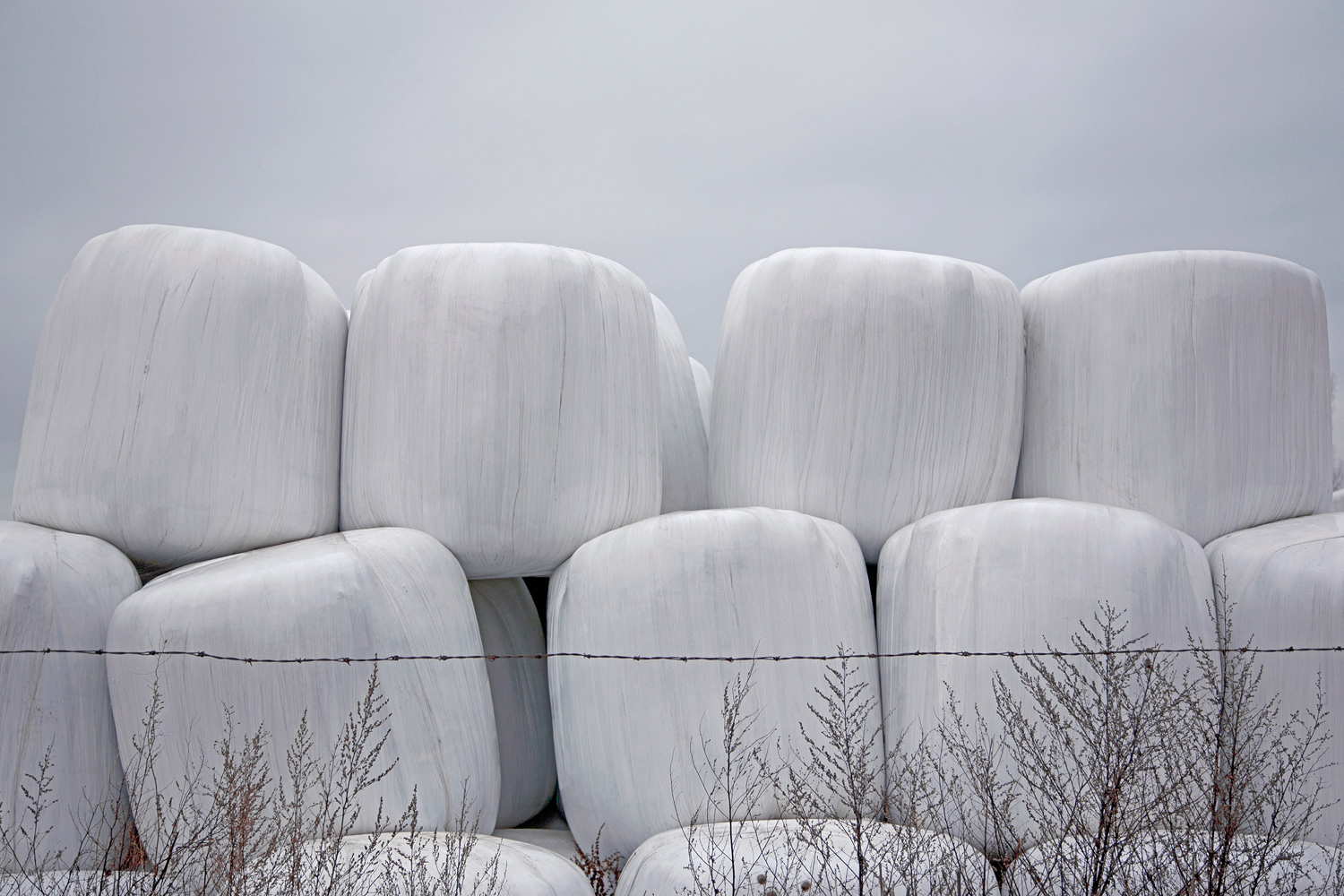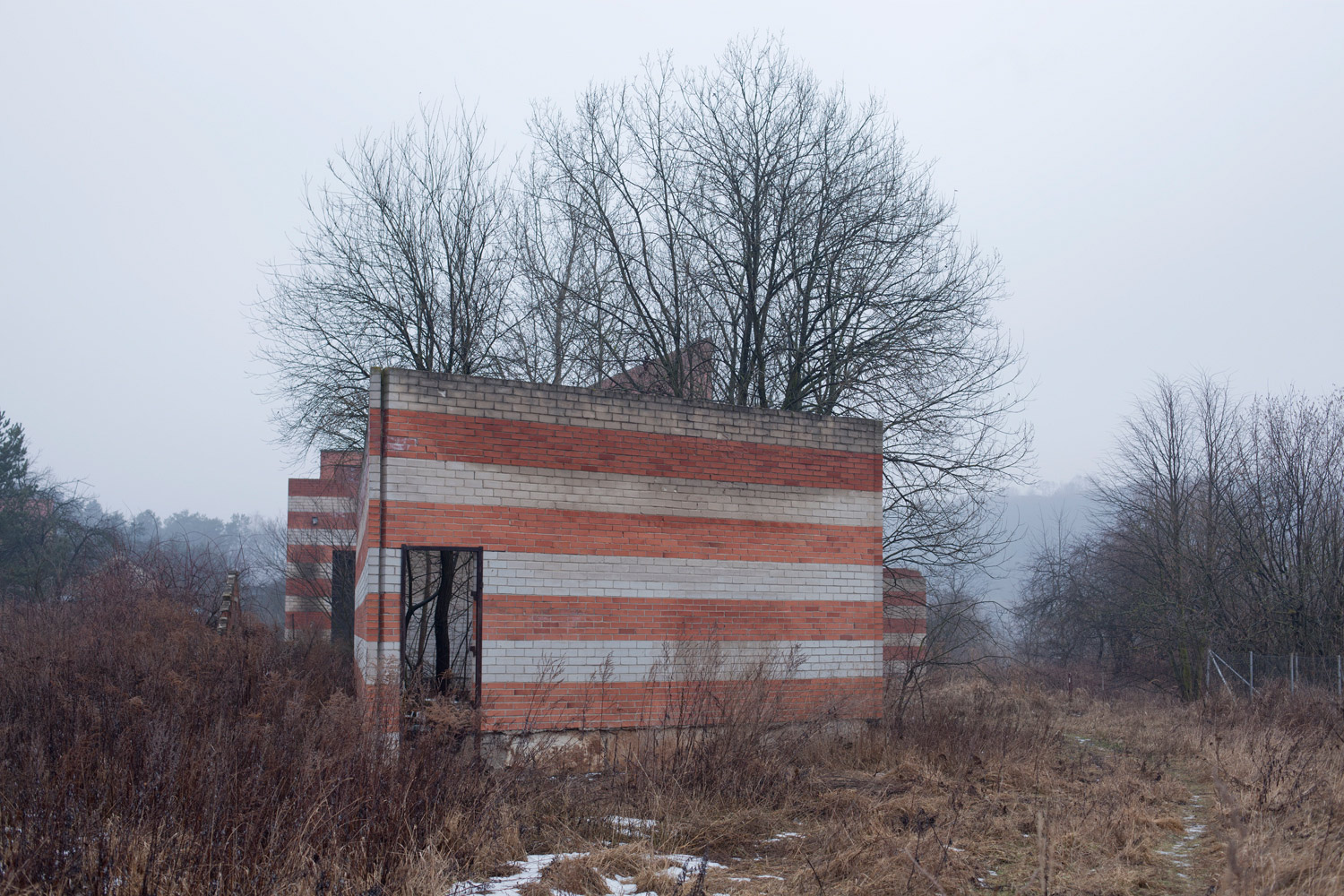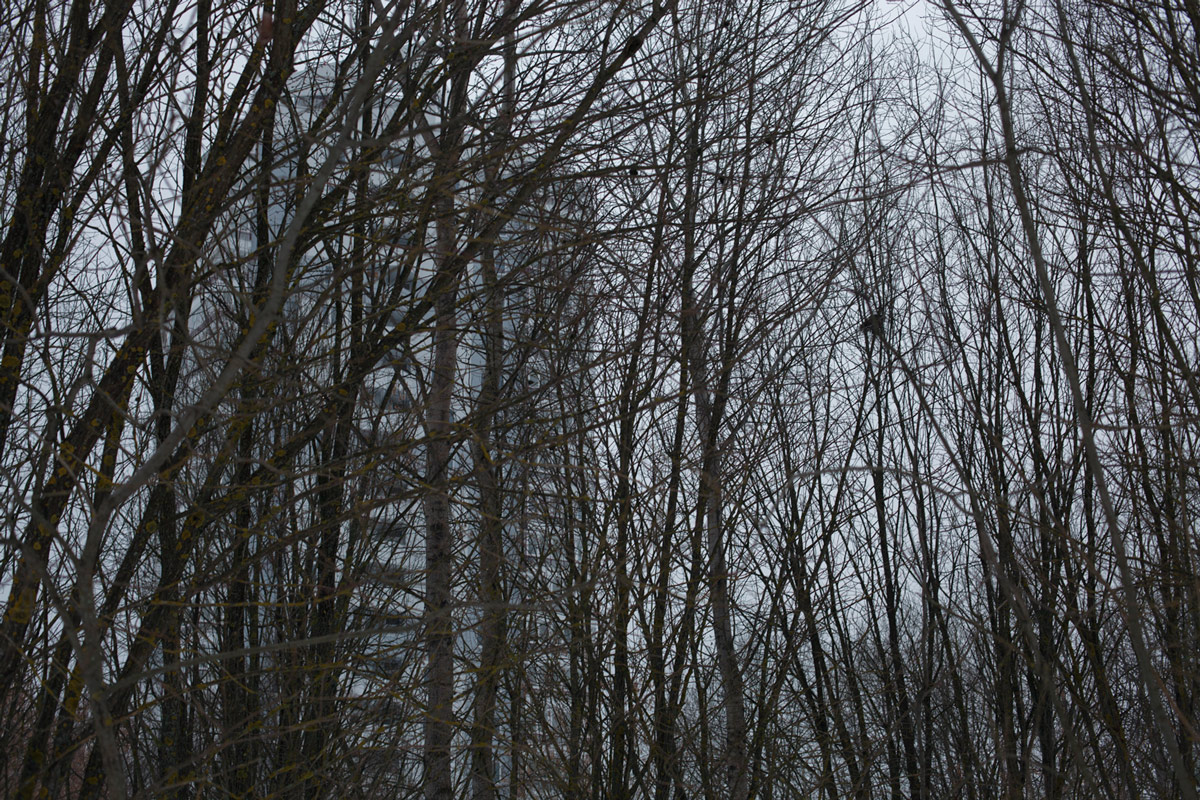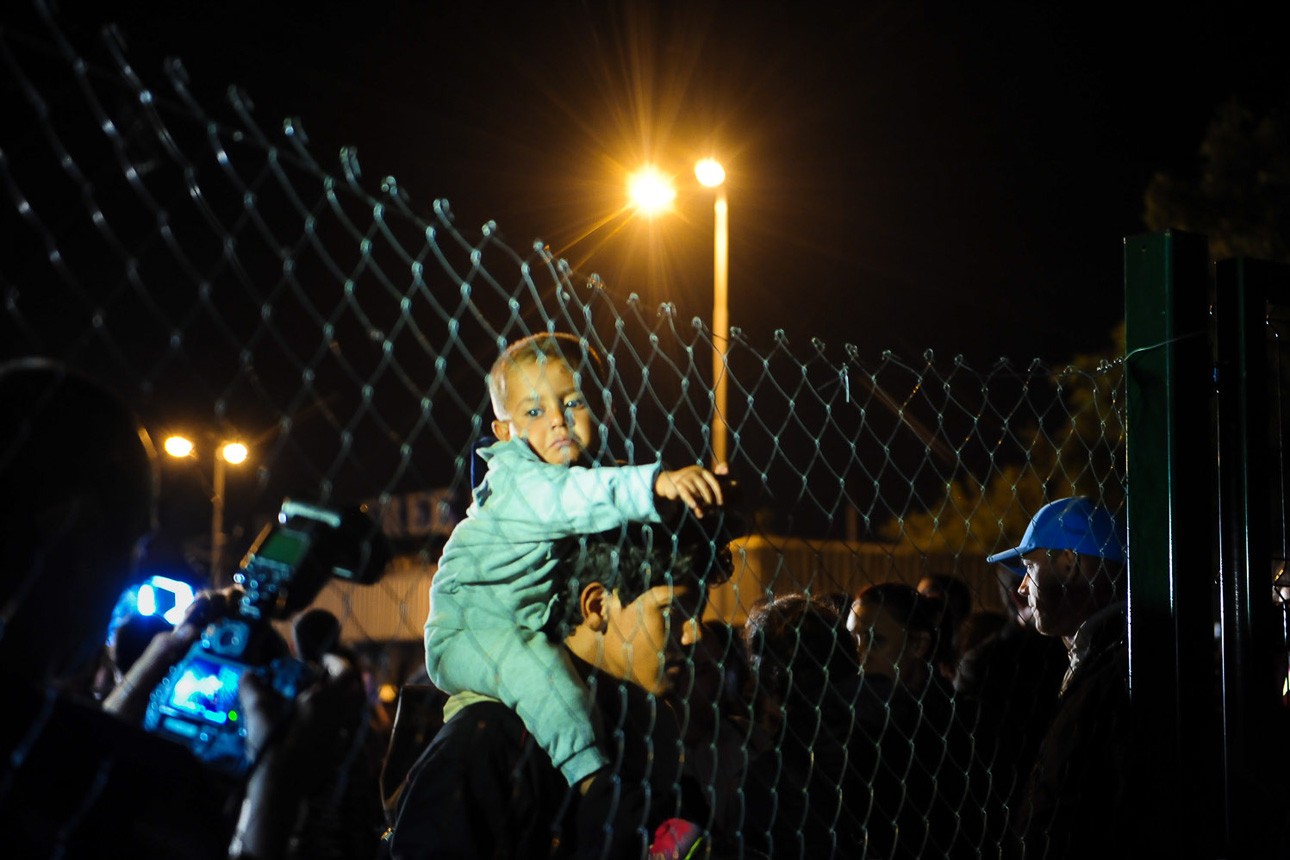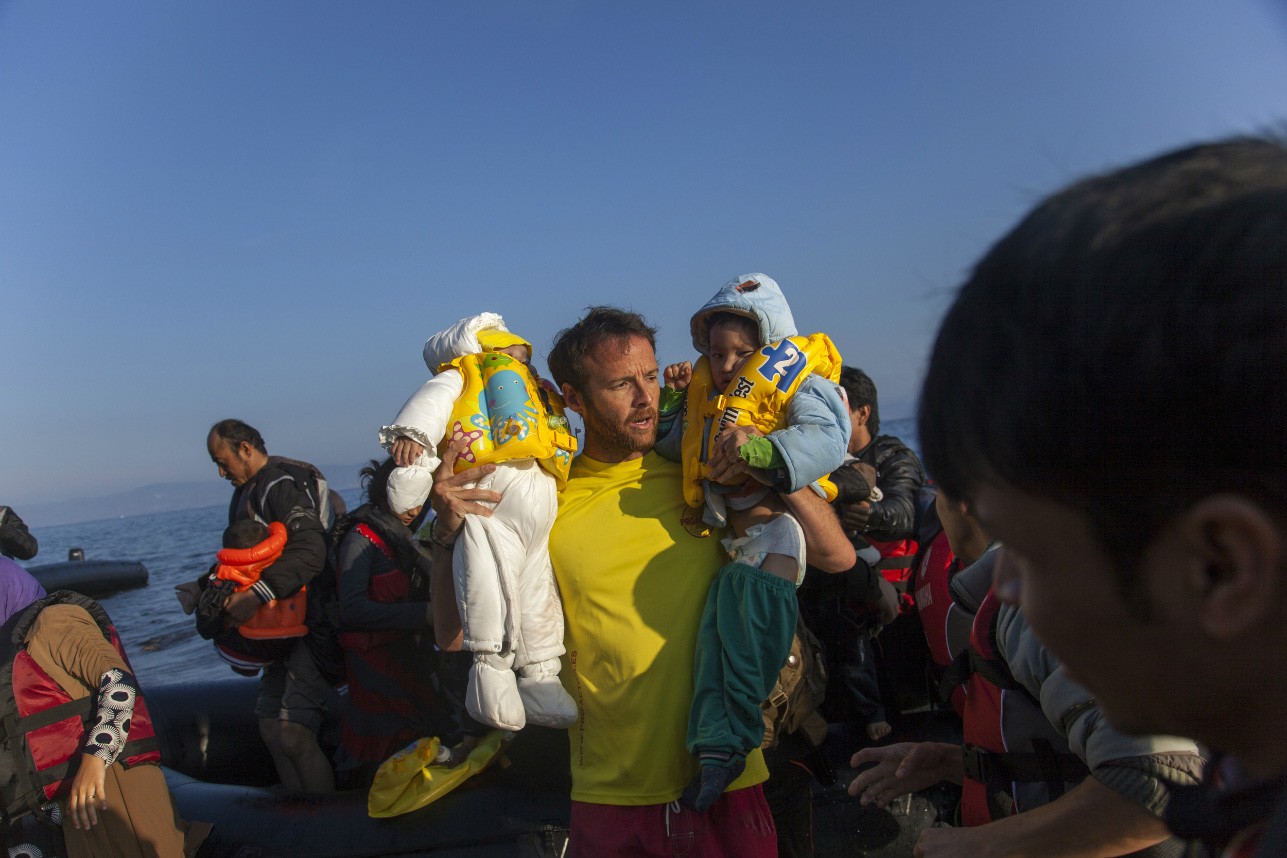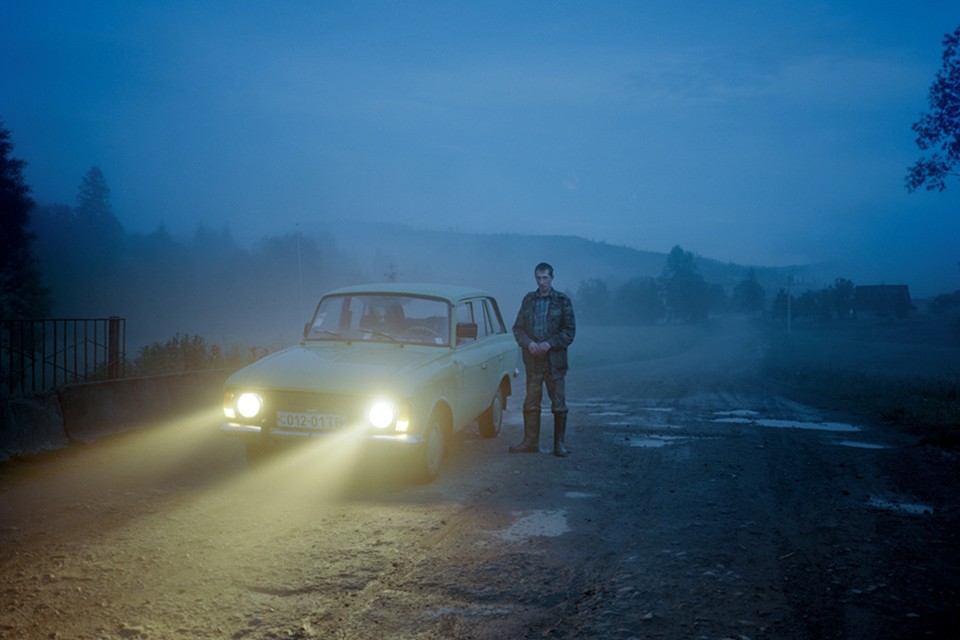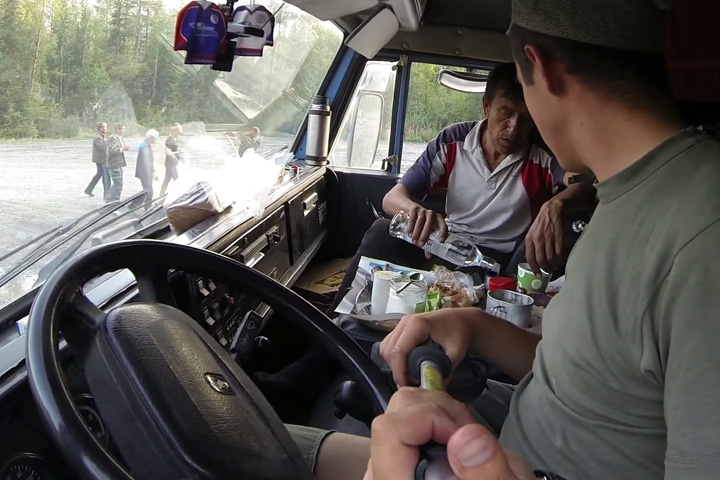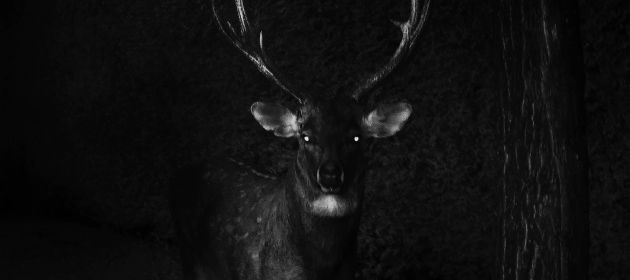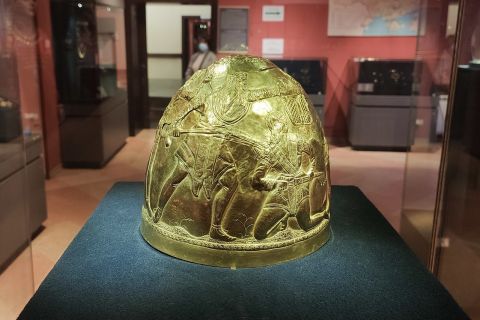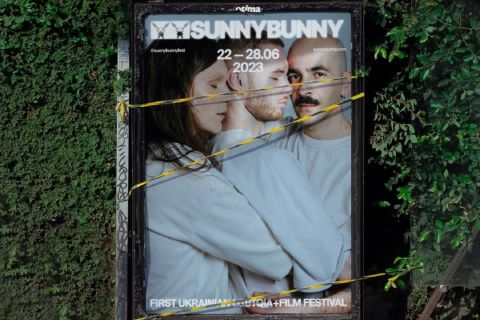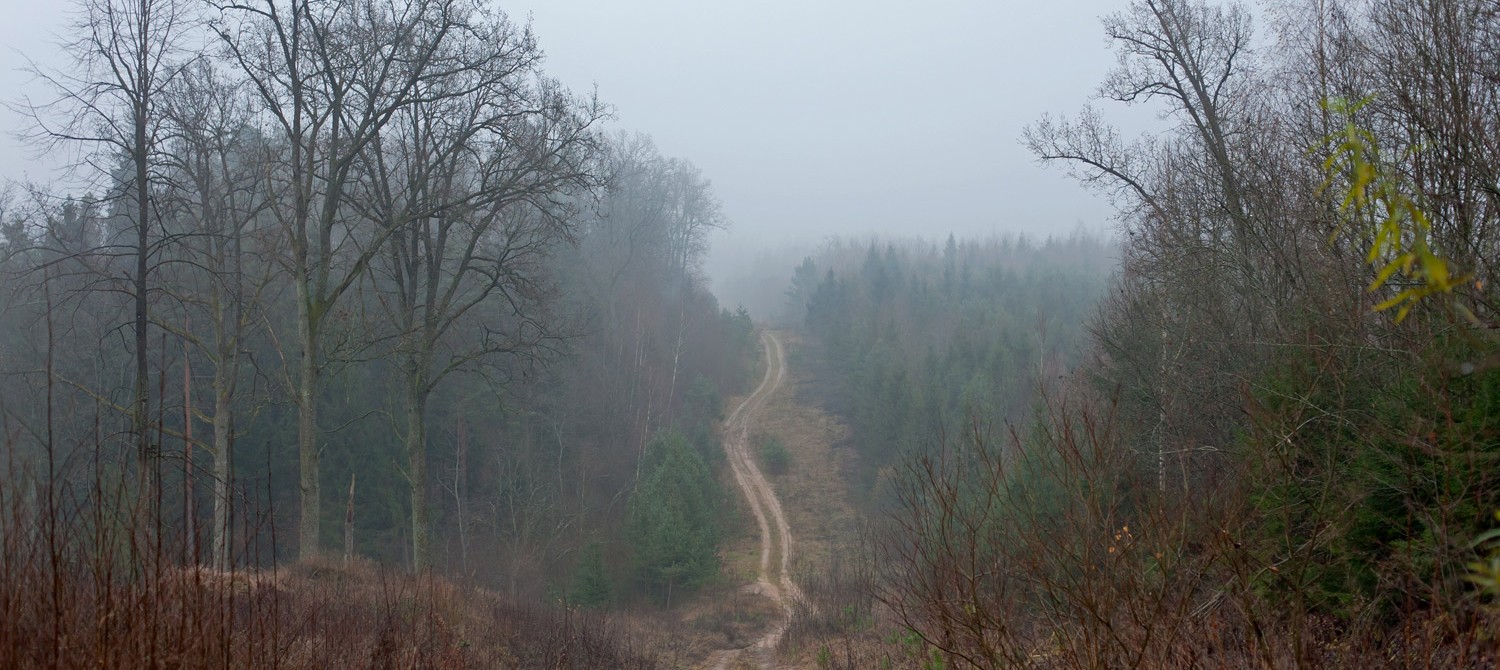
2,200,000 Steps: Polish Photographer Traveled the Route His Grandfather Used to Escape from a Gulag
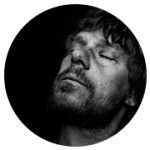
Lives in Cardiff, Wales. Studied documentary photography at the University of Wales, Newport. Graduated in 2008. In 2009, won the Emerging Photographers grant by Magenta Foundation. Has received several more international grants. Works from his Clear of People series were exhibited in the UK, Lithuania, Belarus, Poland, and Australia.
About His Grandfather
My grandfather, Tolek, was born in Uzbekistan, where his father was working for the railway network at the time. When he was little, they all moved to Lithuania, and stayed there until the war. During the Second World War he, like most of his friends, joined the partisans. He spent a couple of years in the forest, just like his younger brother, Wiktor. In the summer of 1944, along with thousands of others, they were arrested and transported to Kaluga in Russia. They remained captives for a year there, but then managed to escape. After almost 4 months on the run, they eventually found their family. No longer in Lithuania, but in Wroclaw, Poland, where many Poles had been relocated as the Soviet administration took over what is now Lithuania.
My grandfather had a long and interesting life. He was a great swimmer, an actual national champion of Lithuania in 1940 and Poland in 1946. He studied electrical engineering and spent his professional life working with city architects. Nature was a big part of his life, so every summer he retreated to an old house in the mountains, where he picked raspberries and made jam for months on end. He walked a lot. I guess it’s a family trait. He passed away at the age of 90.
My grandfather and I were quite close. We spent every summer with him in a house in the mountains. He taught me how to use a lathe when I was 7 and I can still make candleholders out of old tree stumps.
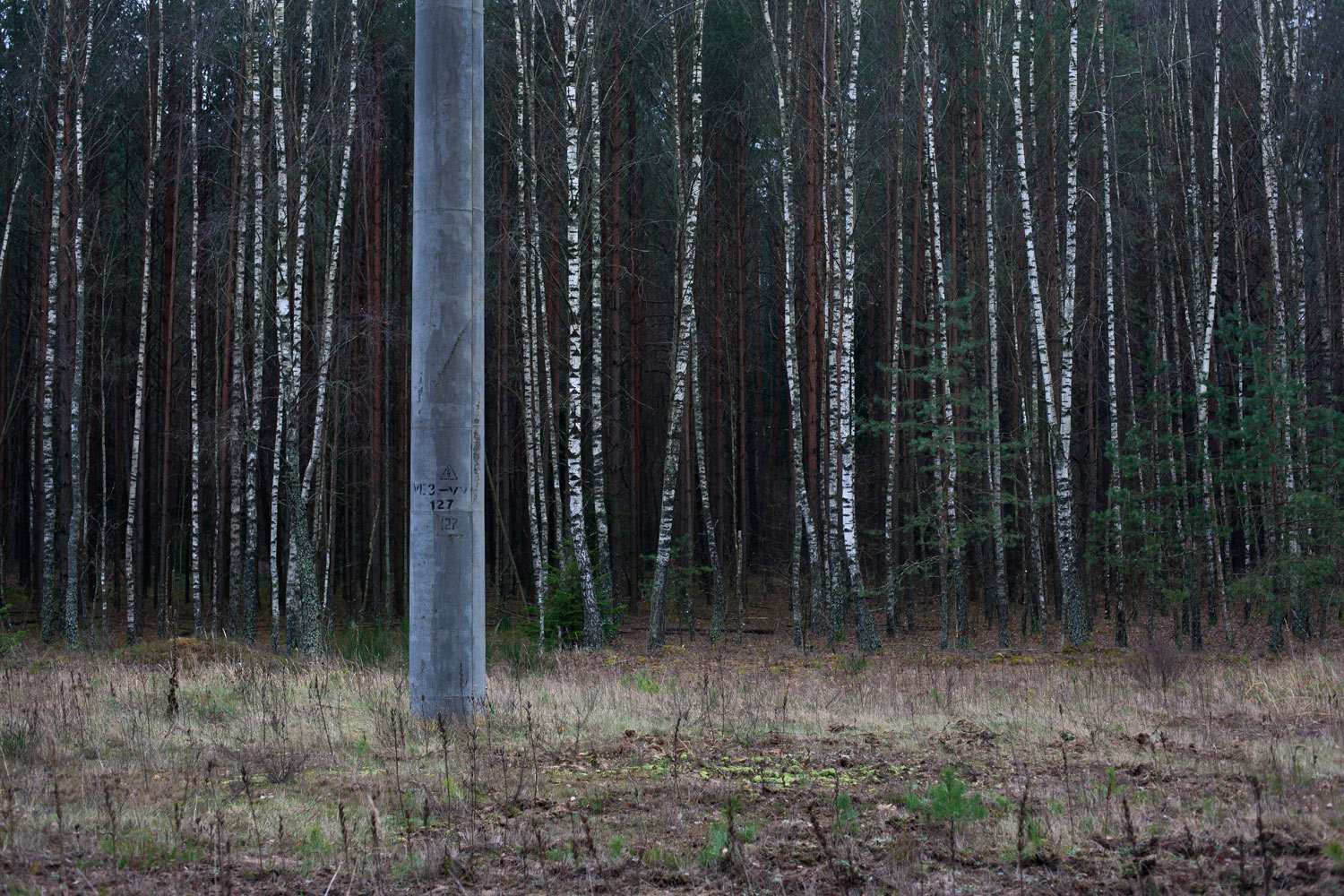
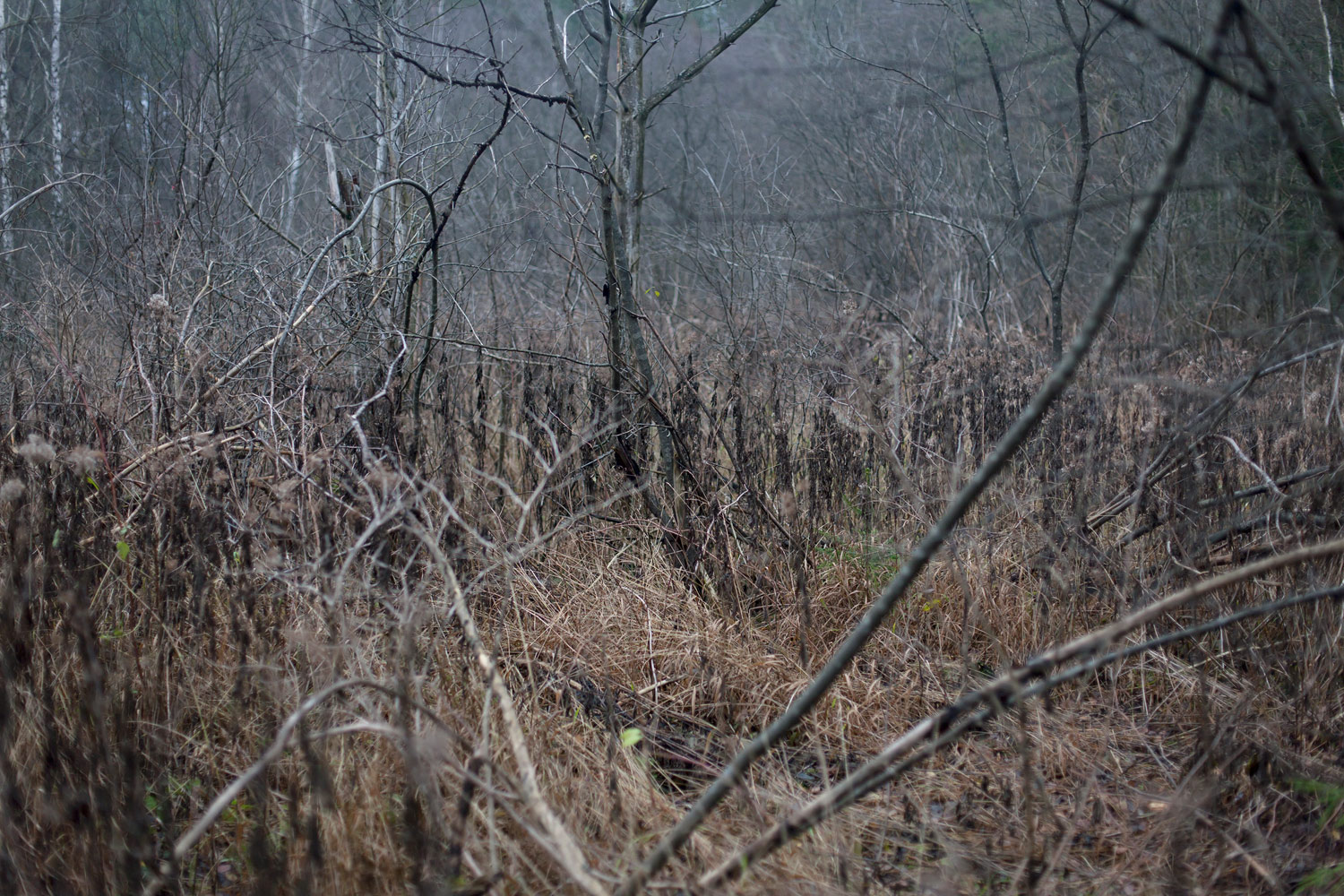
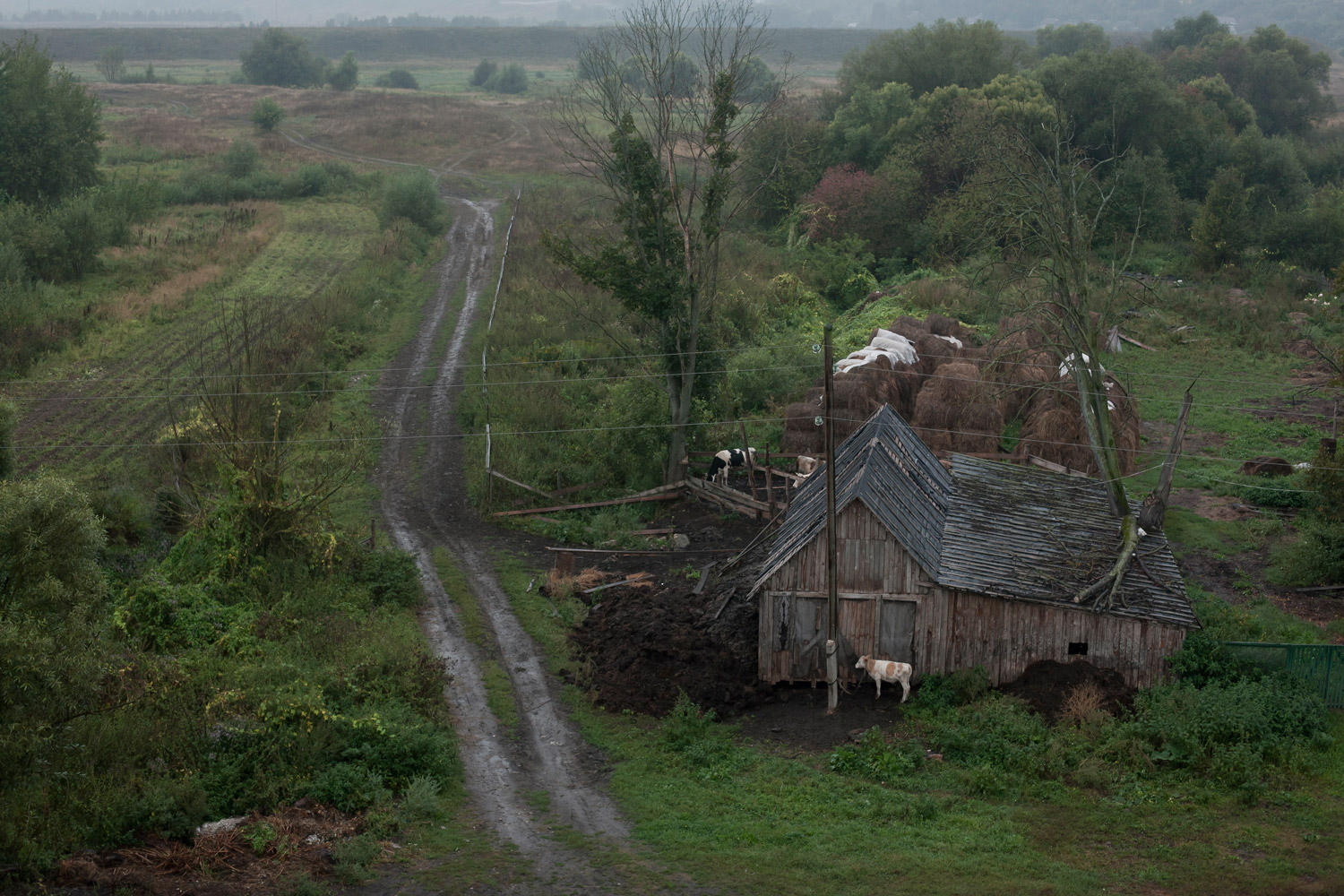
On Getting the Idea for the Project
I was invited to do an artist residency in Lithuania in 2012. I had not been there before, but as soon as I arrived, I felt a very strong connection with the place. All family history, which had felt rather distant to me before, became much more relevant and I developed a very strong interest in it. It was physical; as if my body responded to the land I was walking on.
I decided to find the places I had heard about from my grandparents. I was in Kaunas, which is 100+ kilometres from Vilnius, and so I just put my hiking boots on and started walking to find the traces of my ancestors. I could have taken the bus, of course. But for my photographic process walking is crucial. I can’t think of a better pace of scanning the world than that of my own steps. The process was fascinating. I did not want it to end. I was worried I would find nothing once I reached the destination. Which kind of happened. But I felt I wasn’t done with it yet, I needed to investigate further.
It was then I decided to retrace the whole epic escape from Kaluga — as if to complete the family cycle, to make the same journey, to bring everybody home with me. In many ways I felt I owed this to my grandfather. When he was alive I never had much interest in his past. It is quite typical for people of my generation — we seem to mature quite late. We realize the importance of certain people a bit too late. We grow up to tackle certain topics when it’s a bit too late. Or maybe it is similar for all generations at this age? Possibly.
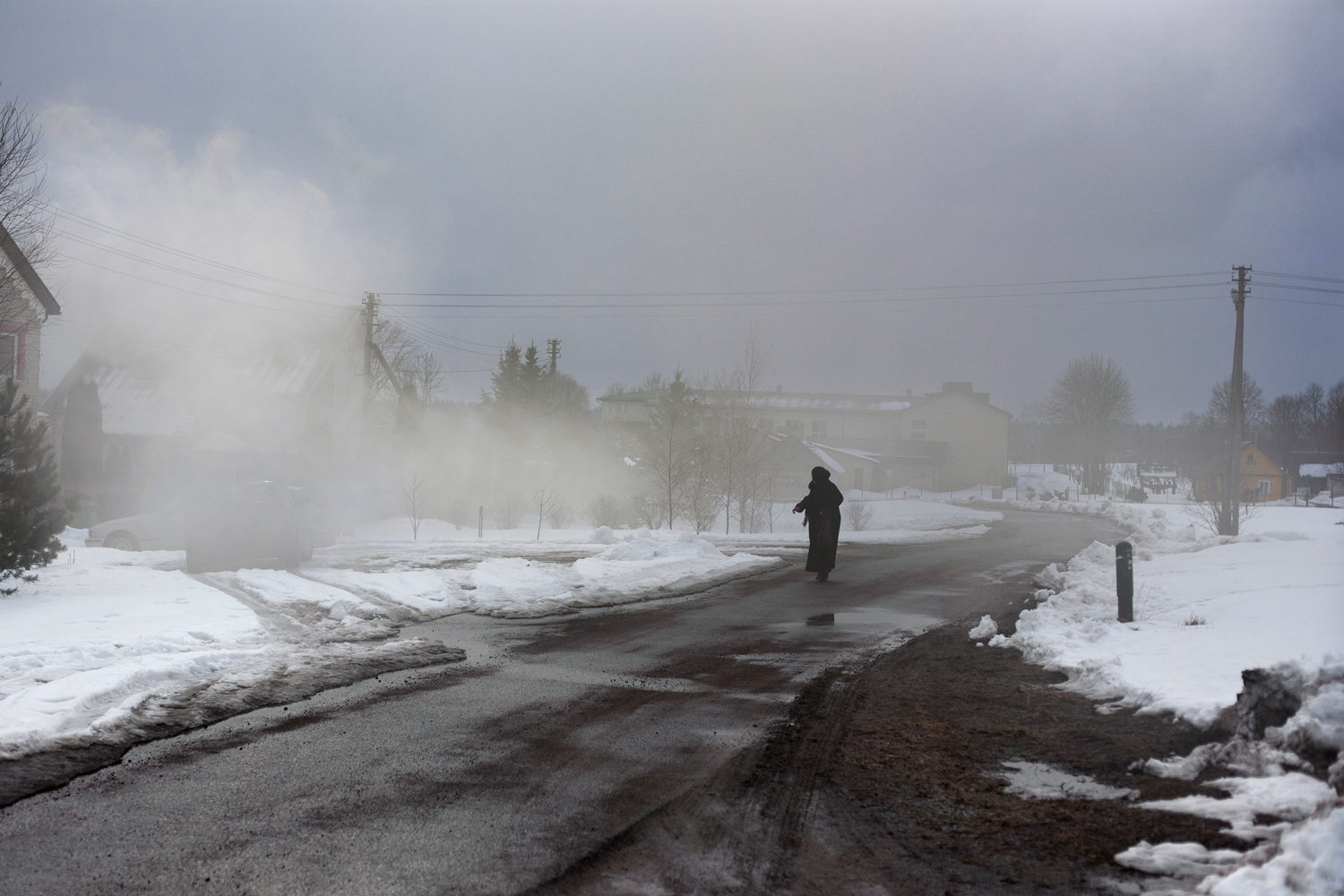
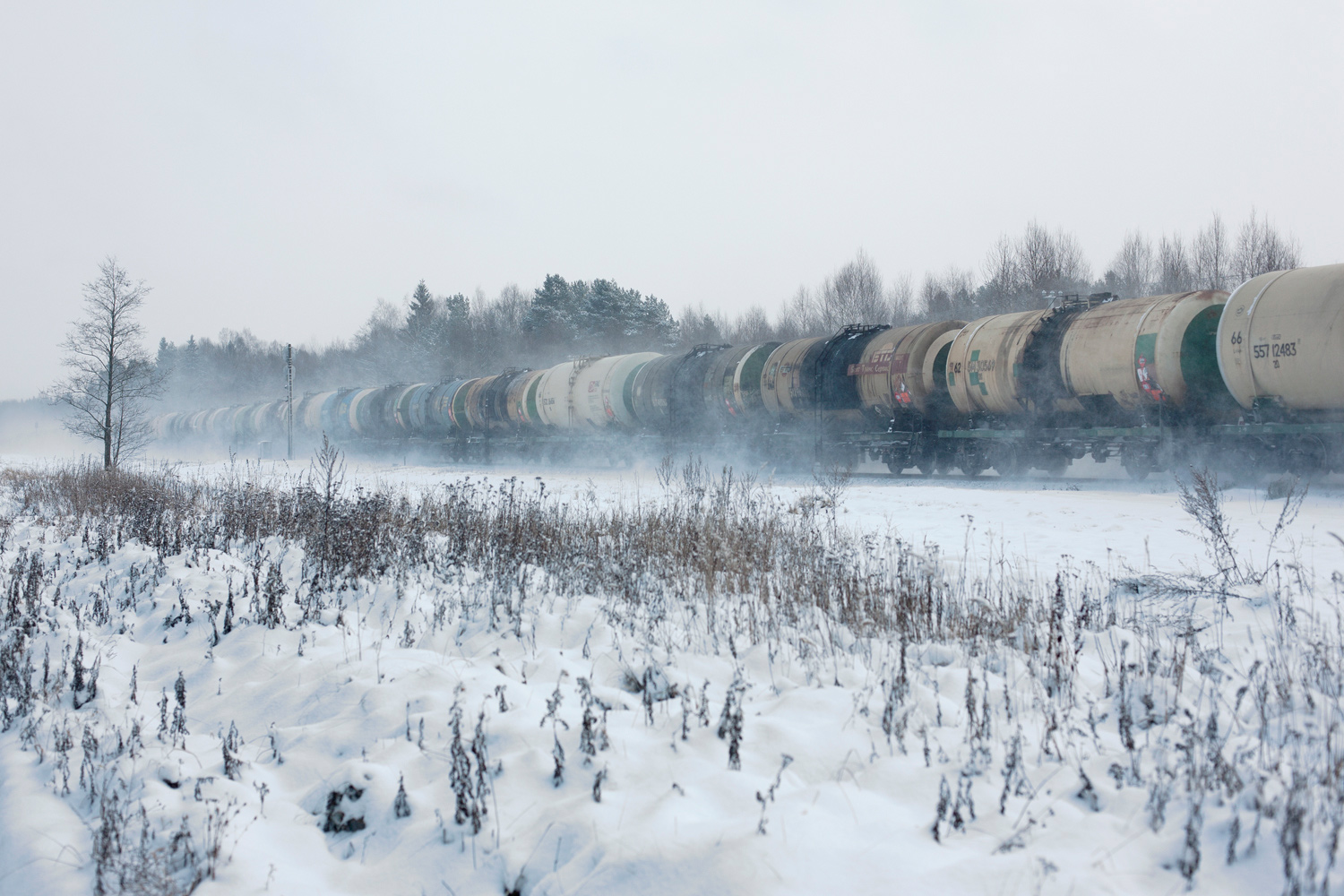
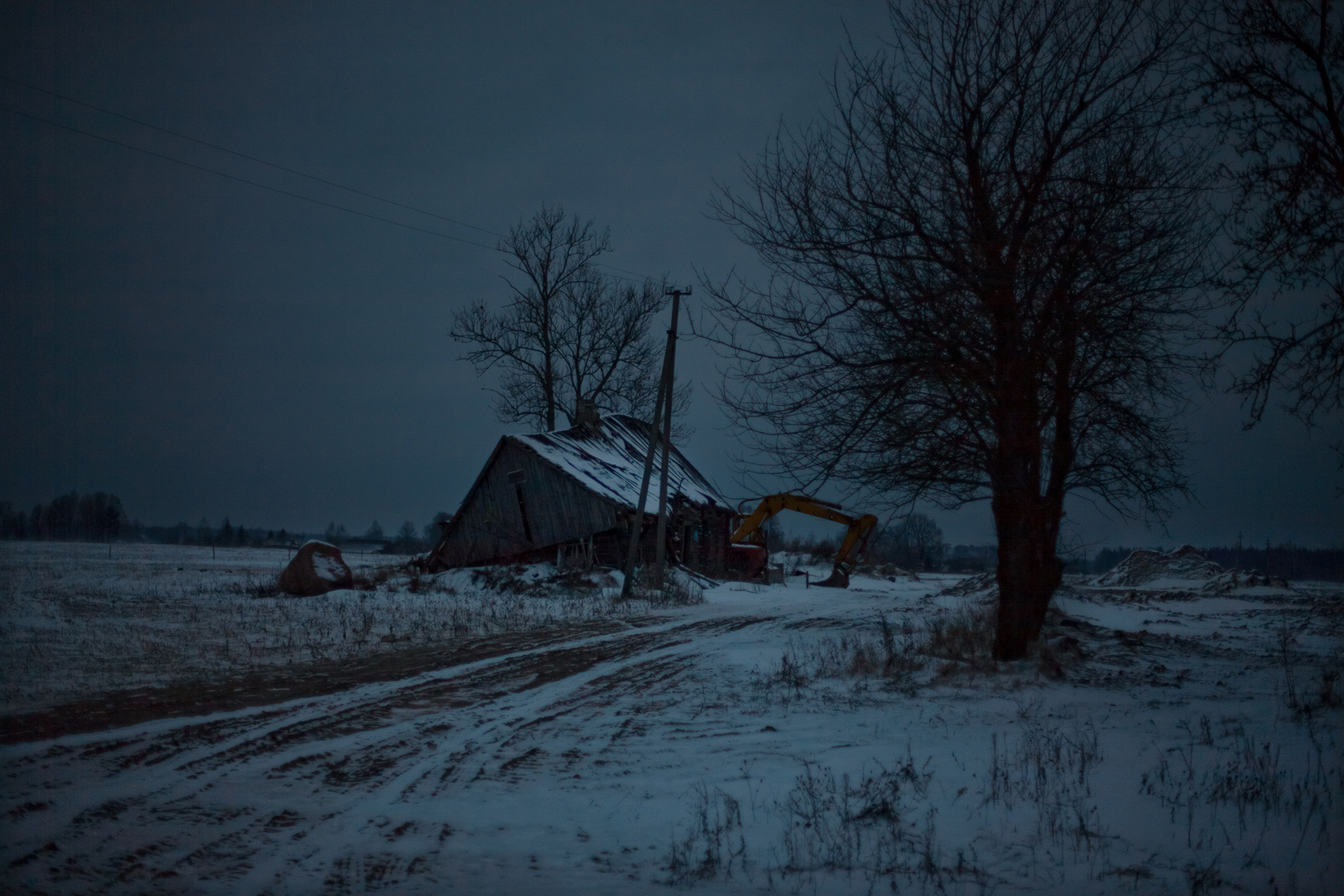
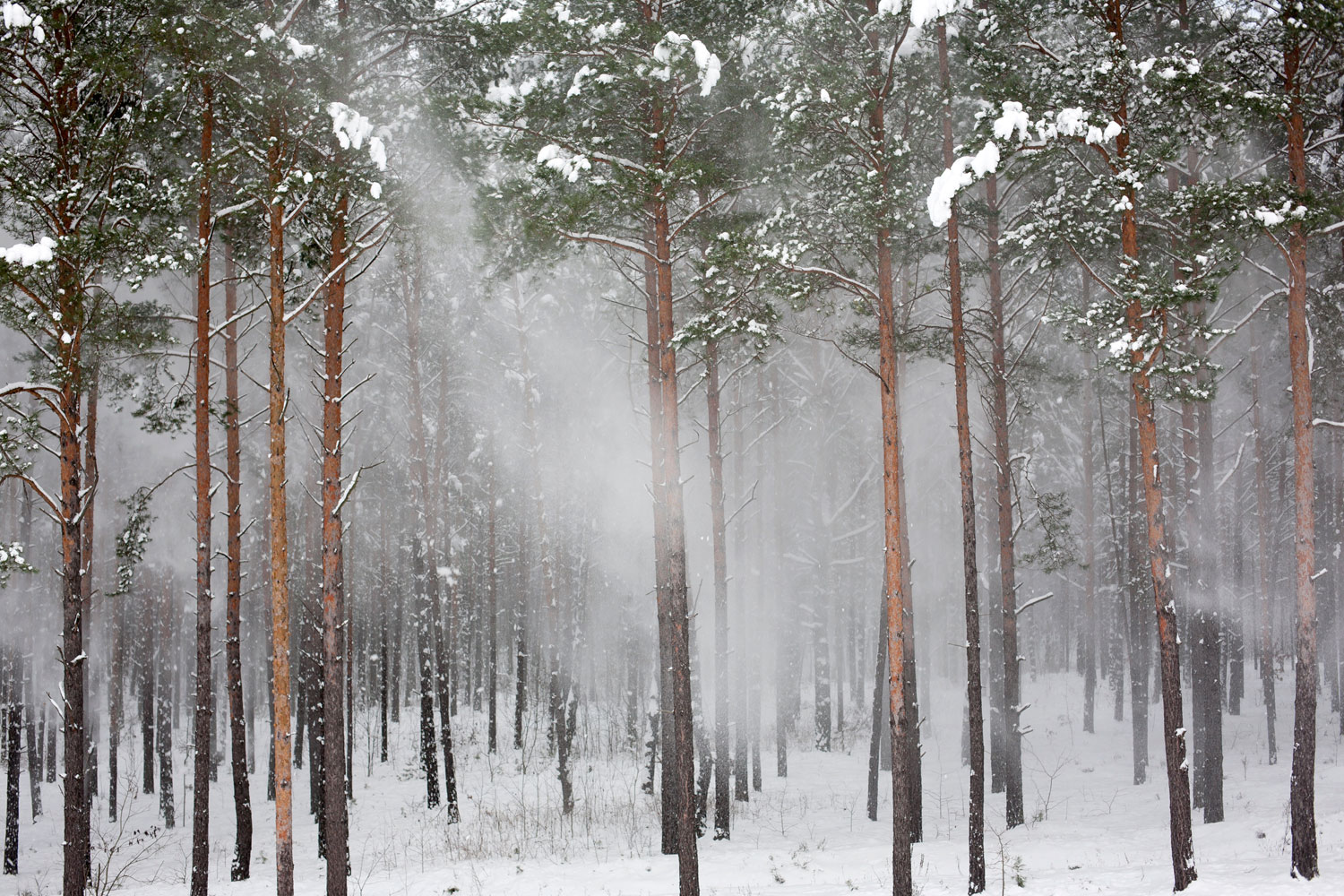
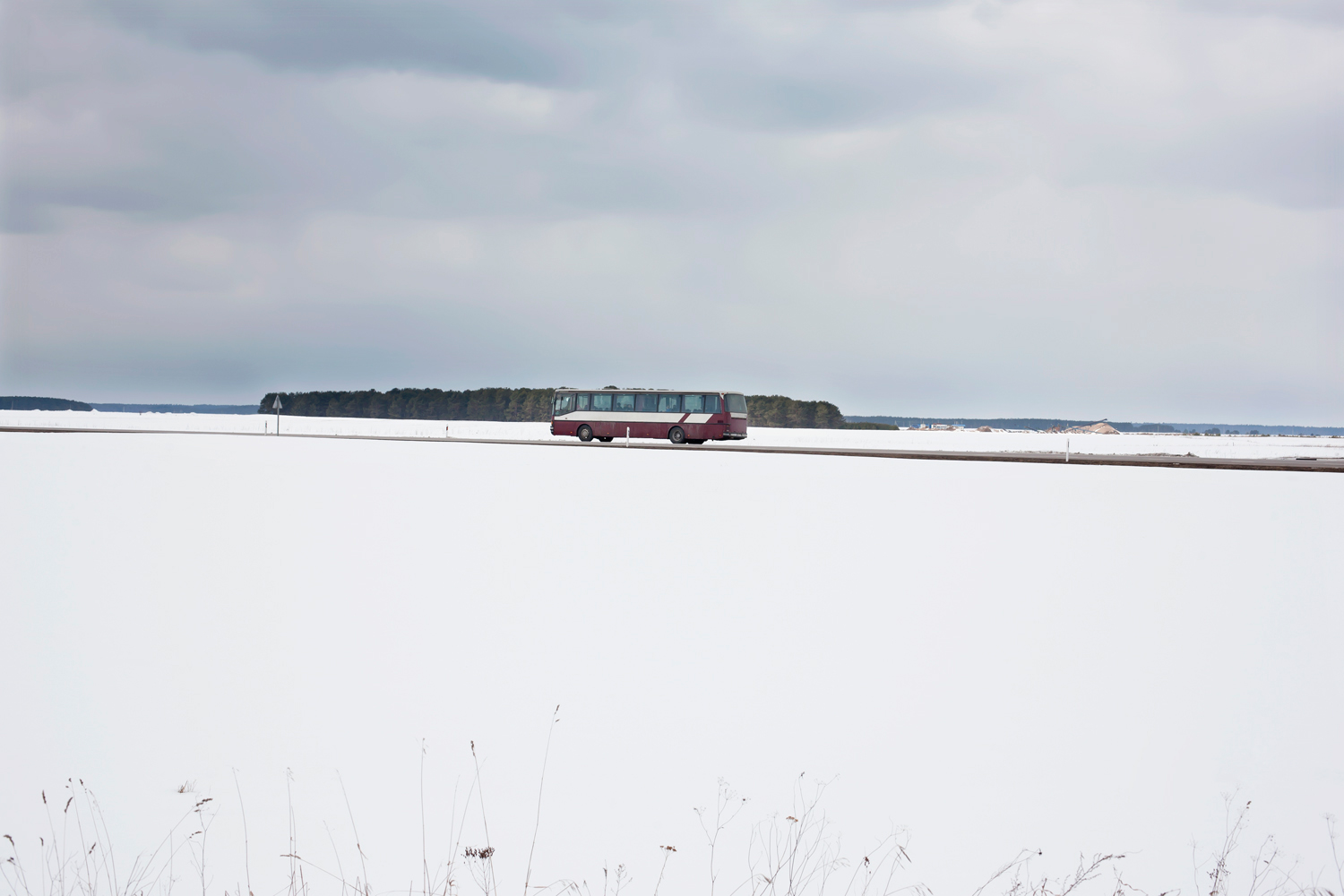
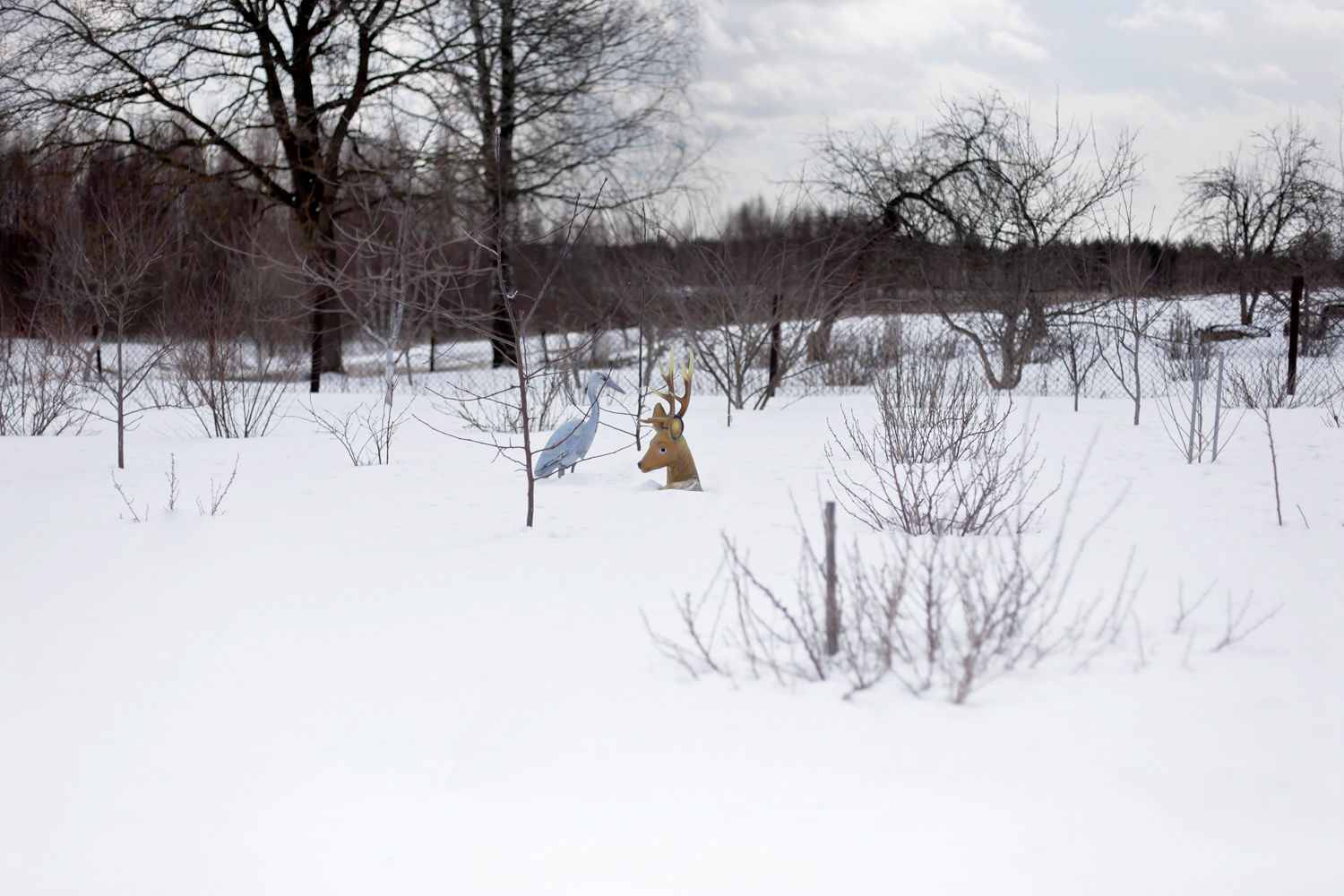
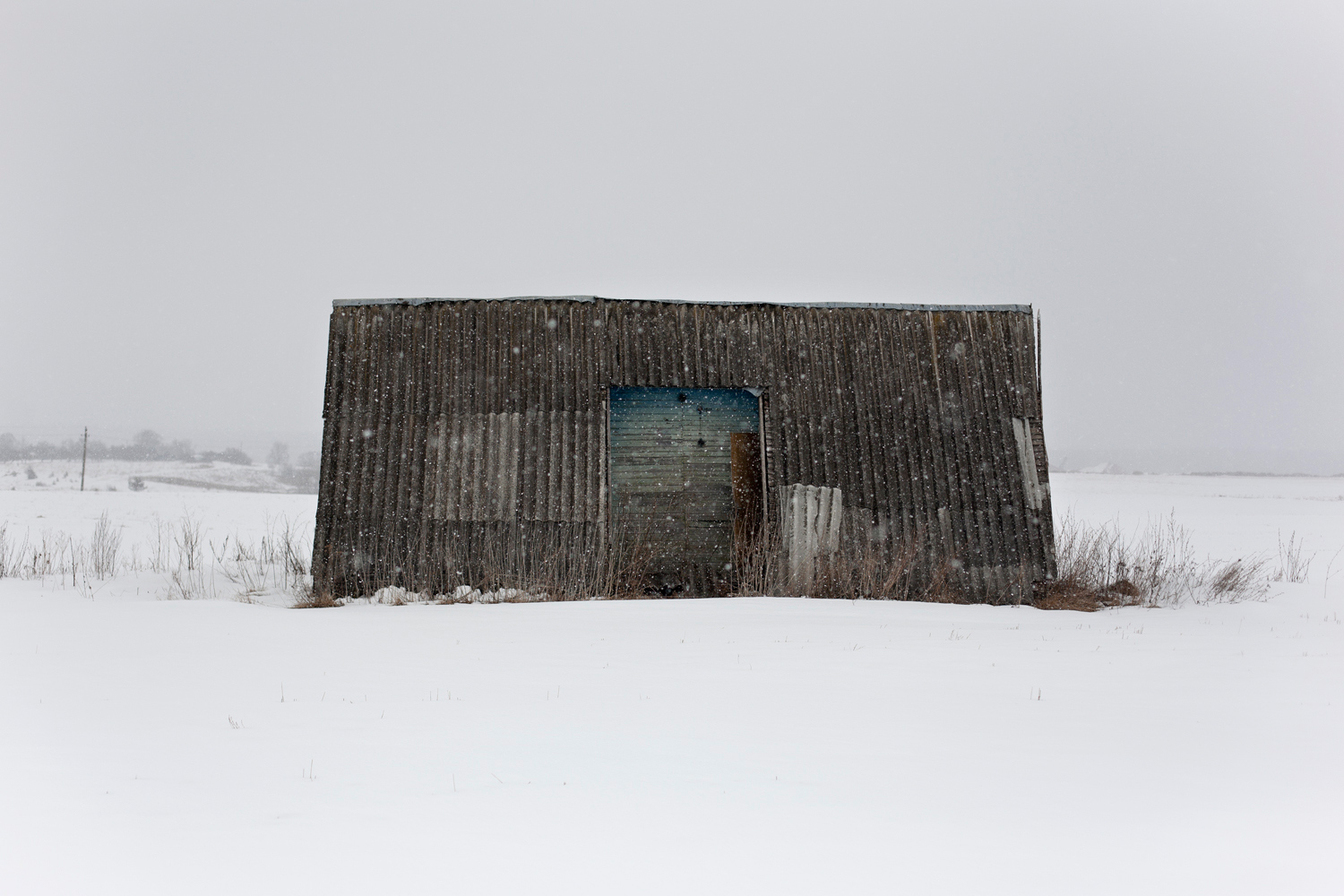
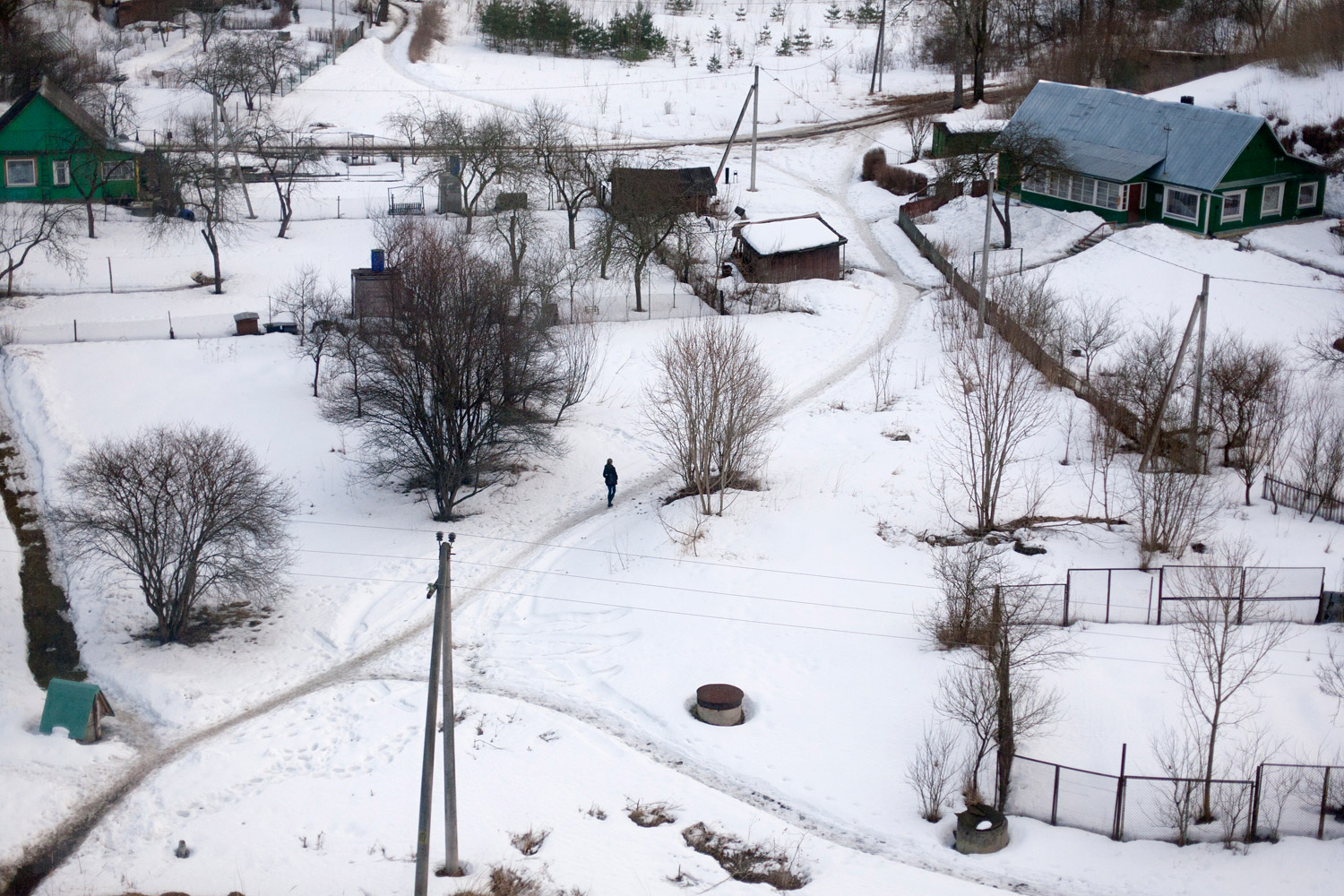
About His Trip
My great uncle had once reconstructed the map of the escape, and it was fundamental. It allowed me to follow the original route step by step. He had also written a memoir, which I had with me. In an eerie time lapse, I would find myself standing in places he described. 70 years apart, the two narratives met with the aid of that map.
The landscape must have looked very similar in 1945 as it does now. Although I remember being quite disappointed when I made it to a tiny village on top of a hill, nothing else around, hills and forests, and there I saw an old lady — a typical sight I remembered also from Poland — she was wearing many flowery skirts, sweaters, and a token scarf on her head. Beauty. And then on close inspection I realised she was on her mobile phone. It was bittersweet, as if my imaginary time capsule got breached by progress.
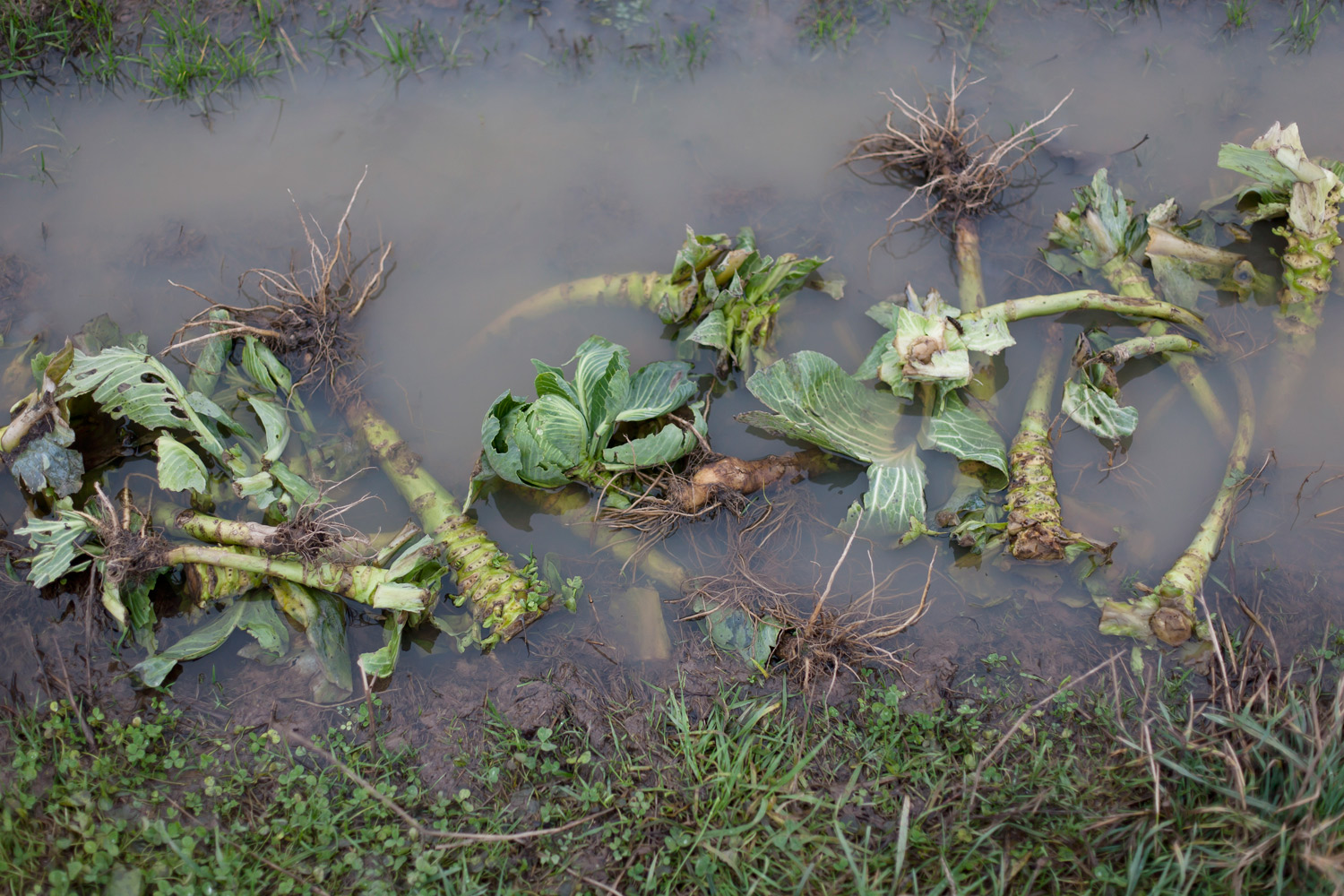
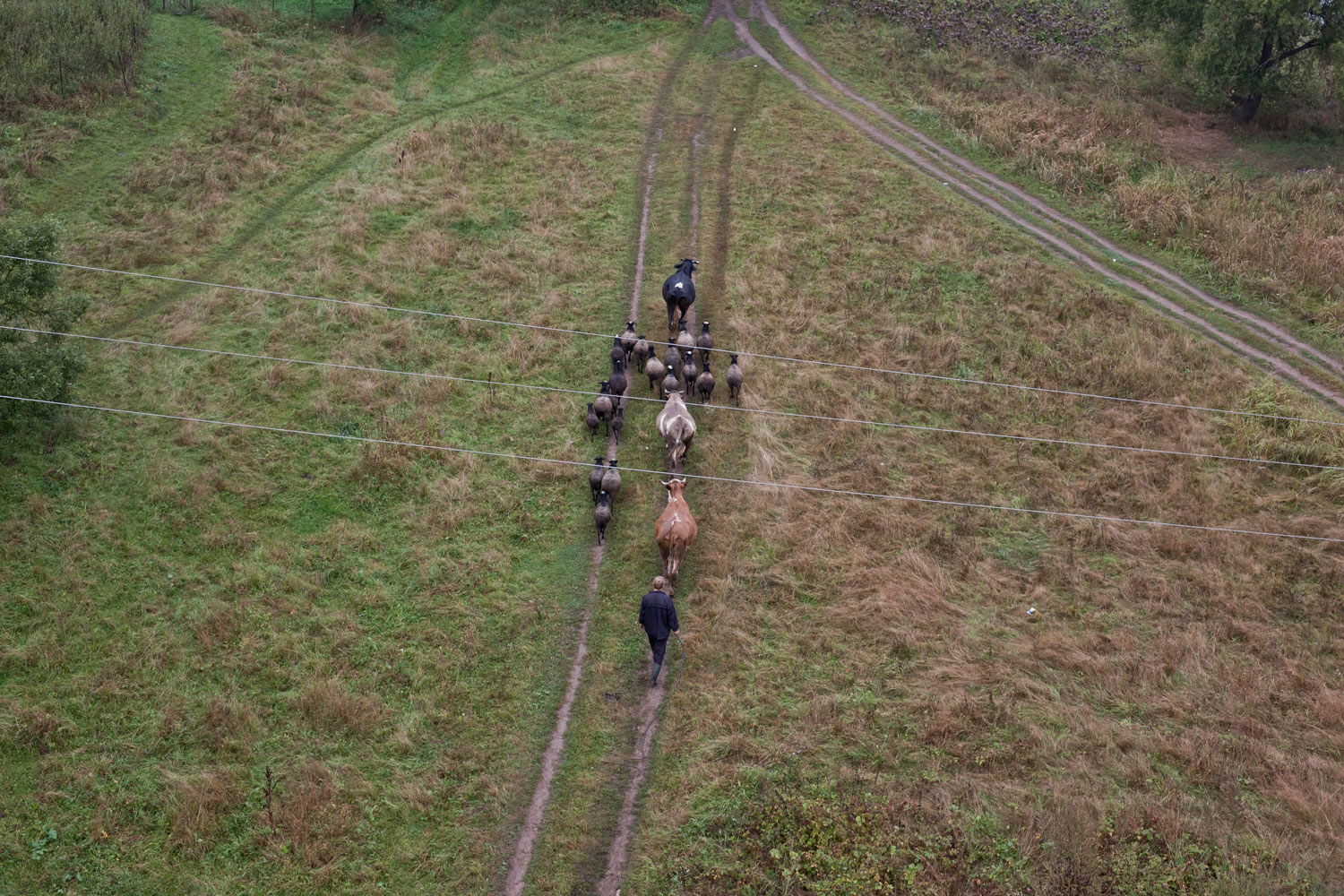
On How People Reacted to Him
The people I met were very kind and generous. Many thought I had lost my mind, some were worried, especially older ladies, who said they’d never let their sons do such things.
There was a rude moment or two, usually at a post office or a check-out, of course. I am used to this kind of rudeness from Poland, we have a running joke that for certain jobs rudeness is a requirement, the post office being one of them. But it was more funny than rude really.
I remember in Bryansk on the 1st of September, I was a bit shaken after falling into a ditch in total darkness, so I wanted to buy a bottle of beer to celebrate not breaking my back. It turned out alcohol was banned in the city on that day, so when I picked up a bottle of ‘Three Bears’ and went to pay, the shop assistant went to town on me. I tried explaining I knew nothing about the ban, but she thought I was only pretending to be a tourist to get away with it. At least I felt very good about my Russian pronunciation.
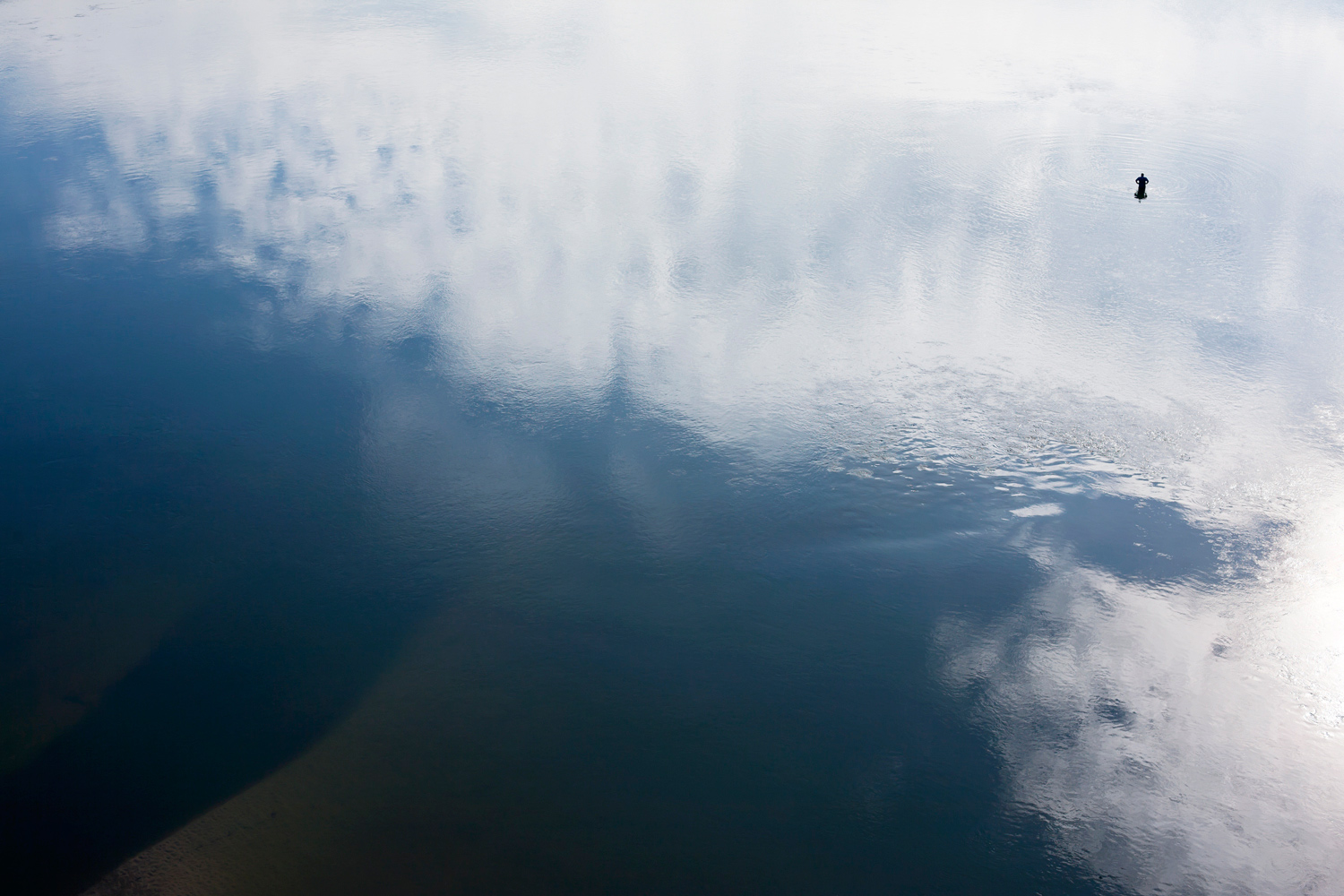
The trip reminded me of my own childhood, we played outside all the time. The trip was solitary, so there were days I would not meet anybody. I enjoyed that process. I talked to myself a lot. I fell into a few holes; I got sucked up to my knees into a swamp; I got lost a few times and had to turn back; I was stopped by the police in Belarus a few times and had my passport examined thoroughly; nothing too dramatic, really.
Generally I remember being very excited and fulfilled during this journey. I had not questioned the purpose of it once. I knew I had to do it, and it felt good to be doing it. At times it was very strenuous and physically challenging, especially in the constant rain or when the temperature dropped to -15 in Lithuania and the battery in my camera gave up. It was hard to work.
On the Importance of the Project
Why do I think it is important to show my project to people? There are a few reasons. First of all, it is important to remember these stories. No one writes about those in history books. And they show the real impact of any conflict, and what it means to people like you and me. This is where the real face of war can be seen.
Second of all, it is important to remind people it can easily happen again. That such fugitive journeys have been happening all over the world since the beginning of human history. They are happening now in Syria. They might be happening in other parts of the world next year. I have met a number of people, wherever this work has been shown, who tell me their own stories, which might be different in their details, but they follow exactly the same pattern: run for your life. I see this body of work as a tribute to the universal fugitive.
Finally, as my great uncle wrote in his memoir, he meant it as a silent tribute to those whose mission it is to make this world a better place. I’d like to pass his legacy on.
I’m working on publishing this project as a photobook at the moment. The design is ready to go to press. With our Kickstarter campaign my publisher (Brave Books, Berlin) and I are hoping to raise enough funds to cover the production of the book. To pre-order a copy of the book, follow this link.
